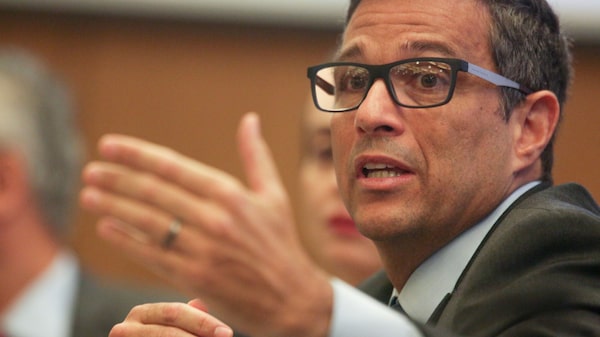Bloomberg — Nobel Laureate Maria Ressa warned that a win for Ferdinand Marcos Jr. in the Philippine presidential poll will show the continued potency of misinformation campaigns that could have implications in the U.S. and Brazilian elections this year.
“If we fall, this isn’t going to be the Philippines alone,” she told Bloomberg TV’s Haslinda Amin in an interview on Monday as voters began casting their ballots.
“This is a global information ecosystem. Like in 2016, we were the first domino to fall followed by Brexit, Trump, Bolsonaro -- well here you go again. Brazil has elections in October, the U.S. has elections in November. So if we fall, stay tuned, it’s coming for you,” she said.
Ressa, who runs the Rappler news website in the Philippines, has won wide international praise for investigations of alleged police abuses in President Rodrigo Duterte’s anti-drug efforts. Rappler has also been documenting the disinformation campaigns run by supporters and networks linked to Duterte and later on, to Marcos Jr. over the past several years.
The Philippines has yet to pass a “fake news” law, even as other nations in Southeast Asia have pressed ahead with legislation to deter misinformation.
Marcos Jr. has been leading in opinion surveys ahead of the election, helped by a barrage of online propaganda painting the tough martial law years under the older Marcos as a golden era and alliances with powerful political clans.
Ressa said Marcos Jr.’s popularity stemmed from such disinformation campaigns that started in 2014, which dovetailed with his clan’s push to rehabilitate their image on the national level. Even though he lost a vice presidential bid in 2016 to Leni Robredo, Ressa said those networks show how systematic information operations “can impact and change reality.”
“It’s almost diabolically brilliant if you think about it,” she said. “If you’re in a car skidding on ice, what you’re told to do is to press the gas and turn into the skid. That’s exactly what Marcos did.”
Marcos Jr. has denied making use of such campaigns, saying online discussions about him and his family are “not scripted” and are part of the “natural reaction of people.” The support for Marcos Jr. also comes from a majority of young voters who were not born during the elder Marcos rule while a broader section of the population have become comfortable with the strongman politics of Duterte.
In this presidential race, Marcos Jr. is in a rematch with Robredo, who has has attracted some of the biggest pre-election crowds in decades in recent weeks. Ressa however downplayed Robredo’s traction on Google Trends, which her supporters say predict a win. “The Google Trends is a coincidence,” she said. “Just because you search for a name doesn’t mean you’re going to vote for that.”




